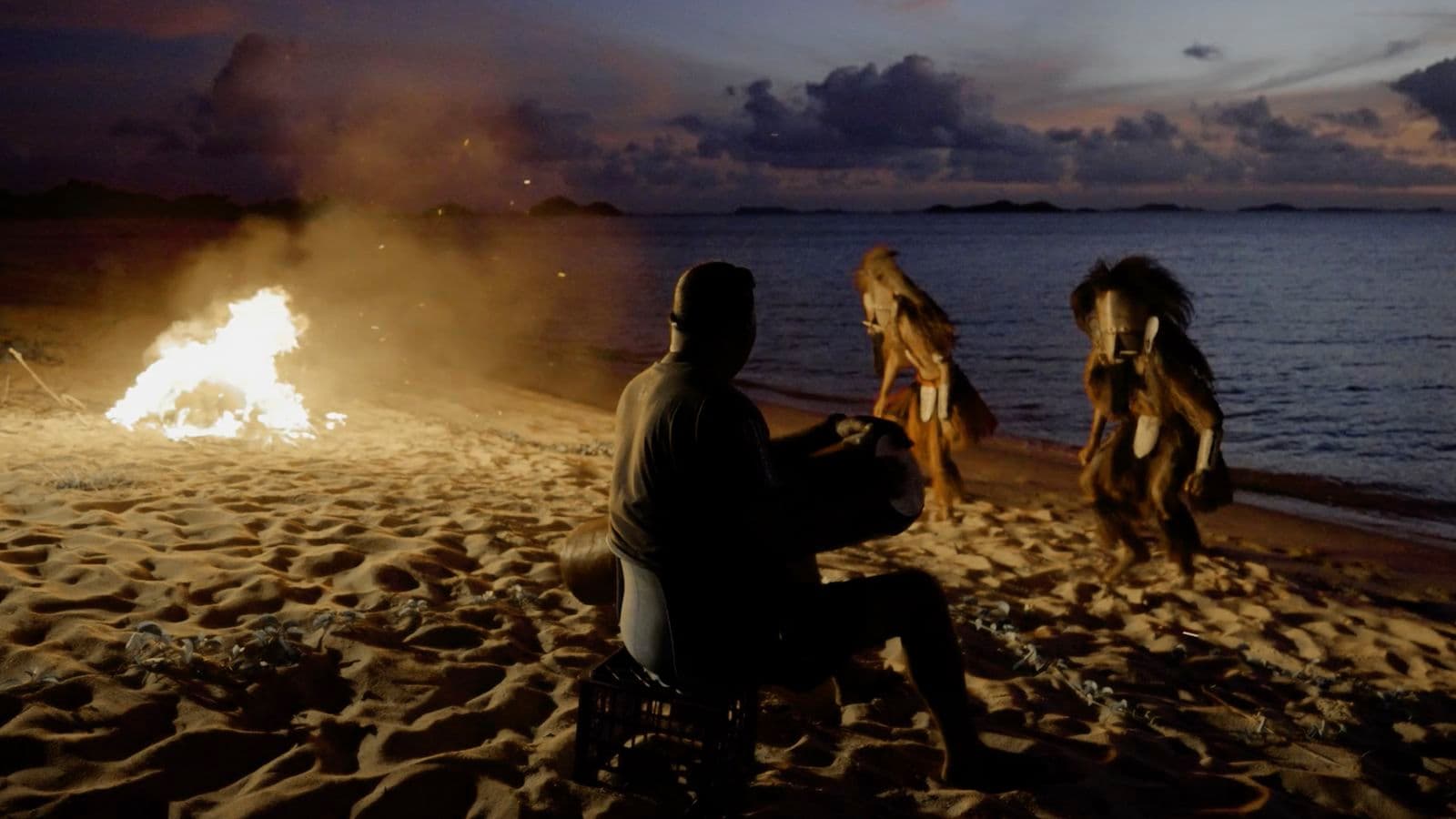Nature and nurture: a study of Patricia Piccinini’s work

Patricia Piccinini, Skywhalepapa, 2020, National Gallery of Australia, Kamberri/Canberra, © Patricia Piccinini.
JAKLYN BABINGTON explores the work of artist PATRICIA PICCININI and her fantastical creatures that suggest what it means to be human.
Patricia Piccinini’s art practice resides in the complex sphere of the real and hyperreal, the factual and speculative, and is mindfully engaged with a wide range of ideas from concepts of the uncanny to the advent of the cyborg, biopolitics and posthumanism. Based on a deep curiosity for the natural world, Piccinini’s wonder situates her practice at the frontier of some of the most pressing issues of the twenty-first century.
Her new project Skywhales: Every heart sings, undertaken for the National Gallery, is an extension of her recurring concern for the interconnectedness of all life forms and a call for the recognition of our genetic bonds to the world around us. In 2013, she created her first hot-air balloon, Skywhale, which was commissioned for and launched during Canberra’s centenary celebrations. This enormous, flying public sculpture was recently donated to the National Gallery and will be joined by a second hot-air balloon, commissioned as part The Balnaves Contemporary Series, to form the Skywhales: Every heart sings project.

Patricia Piccinini, The skywhale suite, 2020, gift of the artist 2021, produced through the Australian Print Workshop’s Artist Fellowship Program © Patricia Piccinini
The new balloon, Skywhalepapa, is a masculine companion piece to the maternal Skywhale, and the pair create a pertinent and timely narrative. More than a new kind of public art, when flown together, the skywhales form a family unit, one that questions traditionally gendered familial roles, particularly that of the expected caregiver. And, like much of Piccinini’s work, they also invite us to think about ourselves as part of nature by emphasising the attributes and behaviours we share with animals.
When the skywhales are interpreted as being in a familiar relationship and enacting recognisable roles, the project becomes a celebration of progressive parenting and a clear call for continued feminist concern. ‘Any and all of the many kinds of human relationships that we know — and I mean that in the most expansive sense — also exist in some form among other animals. Shared parenting, sole-sex parenting, extended family, community childcare — all of these things exist with other animals. In some ways that is the point, there are other models for parenting that are just as natural … I guess the key message is that this is not a work that is trying to tell people what a family should be. I hope it is presenting an image of nurture and care that is inclusive, that suggests that everyone can be a carer and that celebrates caring regardless of gender. If I could I would populate the sky with a hundred skywhales to represent every possible sort of family’.
Many of Piccinini’s best known works, realised as sculptures, videos and hot-air balloons, function to bridge the divide between the human and animal worlds and trigger our anthropomorphic instinct to ascribe human characteristics and emotion onto that which is non-human. Many neuroscientists see anthropomorphism as a necessary biological attribution for ‘intersubjectivity’, an essential tool with which humans can establish relationships for survival, as well as strong social allegiance: a biological instinct that affects both nature and culture.

Artists such as Piccinini are purposefully working at the nexus of science, society and emotion with the hope of affecting real change. When humans can identify and acknowledge their connection to other life forms, empathy results and a shift in our assessment of particular events and situations occurs — from critical and selfish to considerate and cooperative. ‘It is not so much that we should be amazed when animals are like us,’ she says, ‘it is more that we should acknowledge how much like them we are. This is interesting to me because I feel that it changes the terms of the relationship, both in terms of the obligations and the implications. If we are above or outside of nature then we can wreck it because it is a thing that we have, but when we are part of nature, damaging it damages us’.
Skywhales: Every heart sings will see Patricia Piccinini’s Skywhale 2013 and Skywhalepapa 2020 take flight over Canberra in 2021. Skywhalepapa is commissioned as part of The Balnaves Contemporary Series. Skywhales: Every heart sings is a Know My Name project.
Skywhales: Every heart sings will tour nationally in 2021–22 as a National Gallery Travelling Exhibition thanks to the Principal Patronage of the Naomi Milgrom Foundation.


